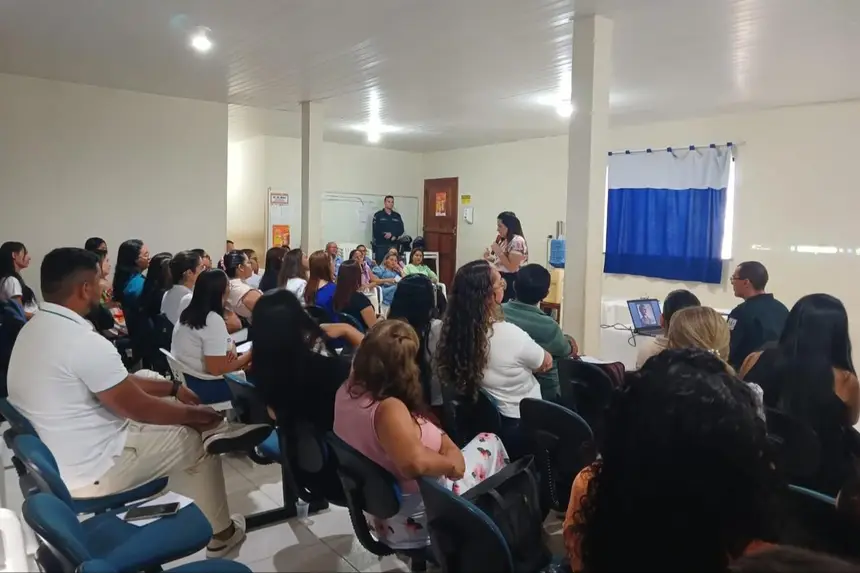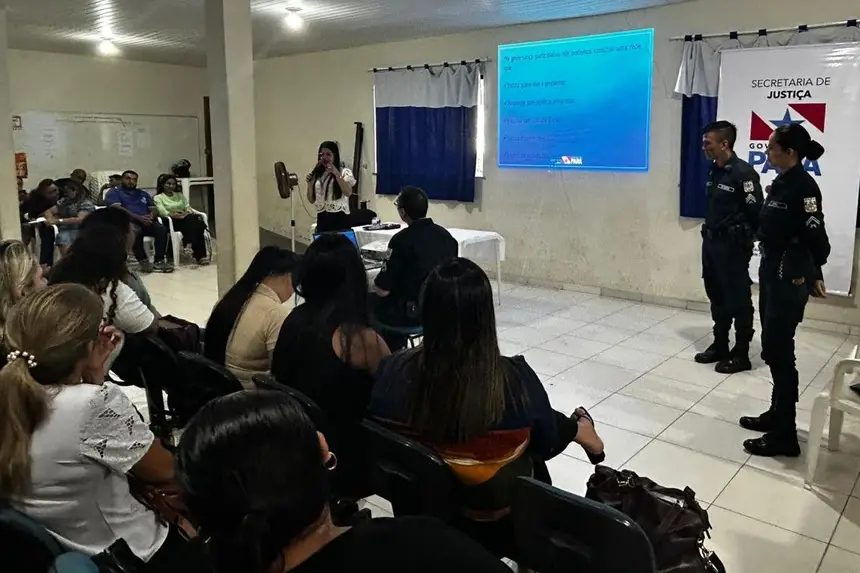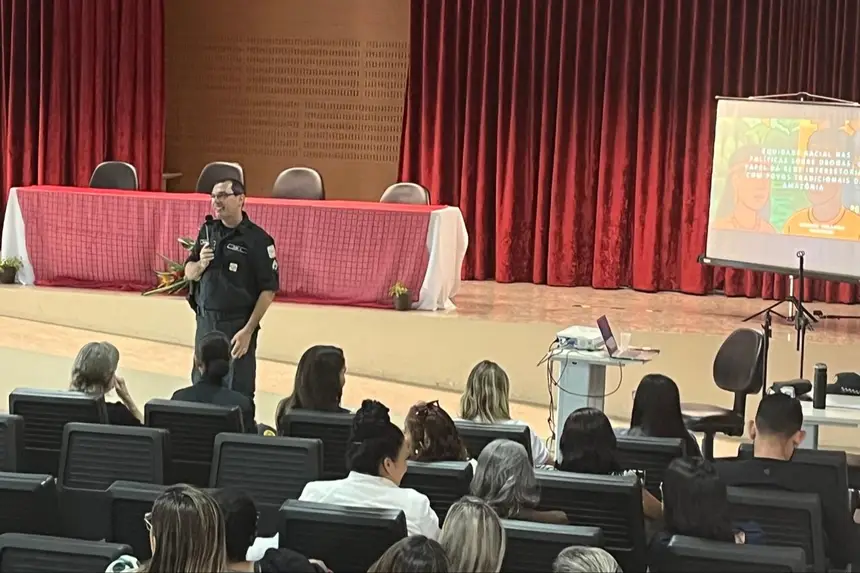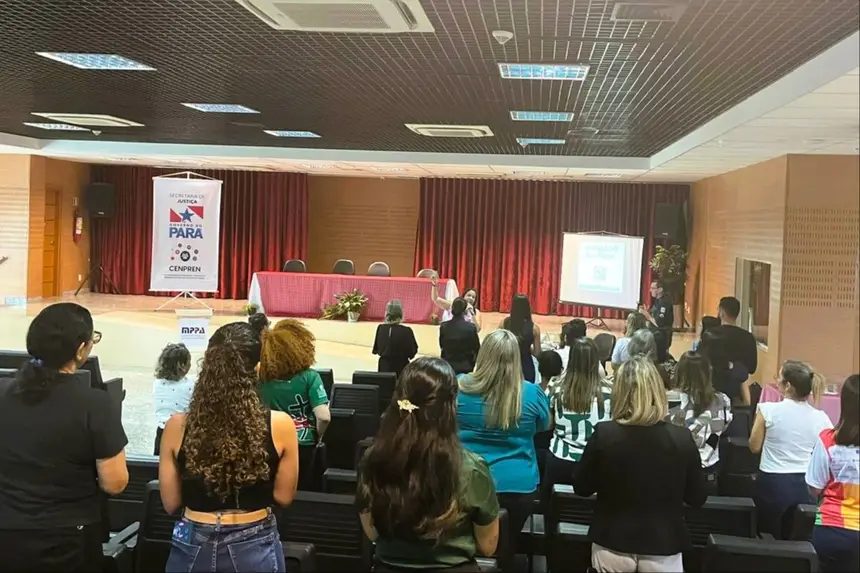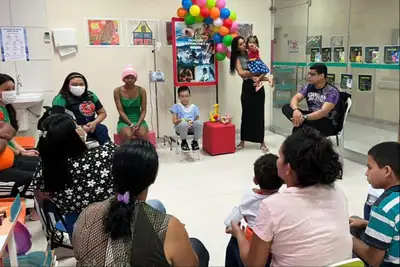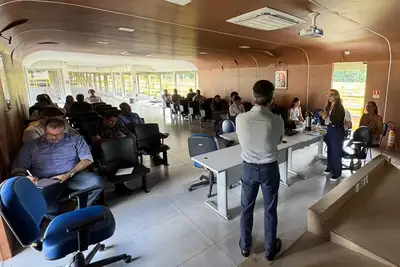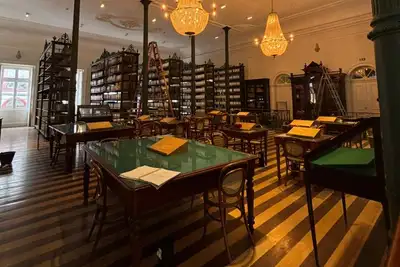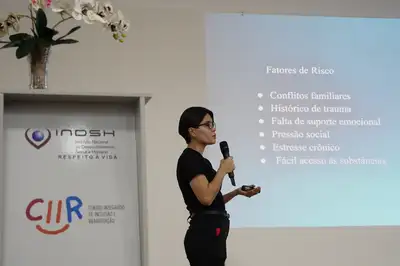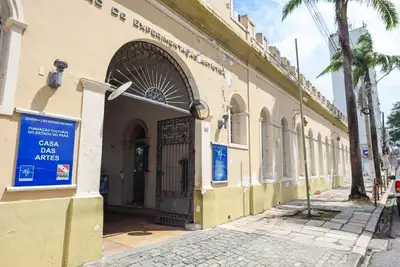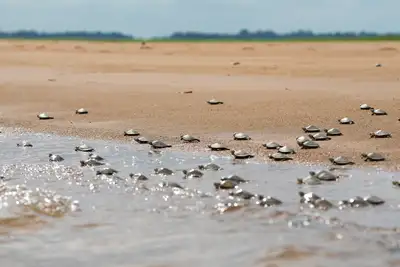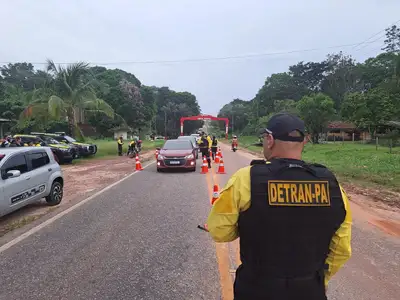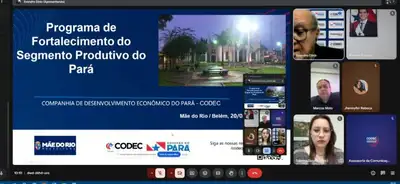Seju strengthens drug policy network in Baixo Amazonas
Action reinforces the importance of linking drug policies to environmental preservation in the Amazon
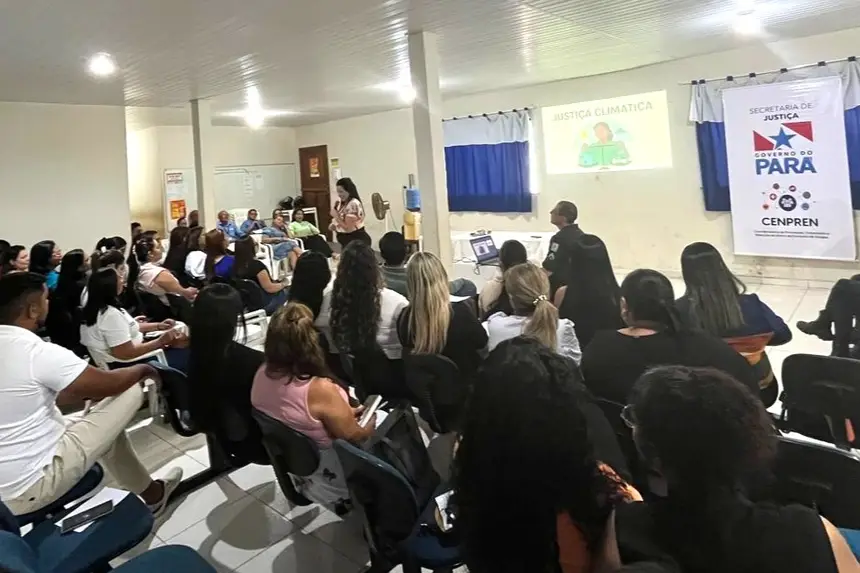
The State Secretariat of Justice (Seju) held training on June 26 and 27 for the intersectoral drug policy network in the municipalities of Santarém and Monte Alegre, in the Baixo Amazonas region. The aim was to strengthen dialogue among various professionals working in the prevention and treatment of substance dependence, thus promoting greater care in the territories.
The program included collaboration from the Military Police, the Social Assistance Secretariat, and the Municipal Drug Council of each city. The topics addressed were “Participatory Governance: Councils as Bridges between Territories and Public Policies” and “Racial Equity in Drug Policies: The Role of the Intersectoral Network with Traditional Peoples of the Amazon,” seeking to reaffirm the strategic role of the State as a protagonist in drug policies and how this fits into a social and climate justice agenda.
The first training session, on participatory governance, was led by Seju's Justice Director, Renata Hage, and addressed the transformative role of councils and participatory governance. By bringing together representatives from health, social assistance, public safety, education, culture, and civil society, councils serve as spaces for ethical and political debates and agreements, capable of translating the demands of the territories into assertive public policies. The methodology adopted in the activity, based on active listening, territorial reading, and shared accountability, values community protagonism and the collective construction of solutions.
The second training session, conducted by Seju technician Márcia Miranda Marques, highlighted the urgency of recognizing that the traditional peoples of the Amazon (indigenous, quilombolas, riverside dwellers, and extractivists) are not only disproportionately targeted by repressive drug policies but also defenders of ancestral knowledge in the region and biodiversity. At the same time, they are the primary victims of the environmental and social impacts of climate change. In this sense, the training sought to highlight that social justice is interconnected with climate justice, as there can be no effective drug combat or preservation of the Amazon without equity and respect for the populations living there.
“This training is part of a larger movement: to ensure that drug policies are aligned with climate justice, recognizing that the impacts of the environment and social exclusion fall on the same vulnerable bodies. This perspective is even more relevant with the leadership assumed by Pará as the host of COP 30 and in the discussions about the importance of environmental preservation,” explained Renata Hage.
The representative of the Municipal Secretariat of Culture, Sports, and Tourism and a member of the Municipal Drug Council of Monte Alegre, Selma Naiara, emphasized the importance of the meeting for her professional work. “Today we have a breadth of various places of action and power for change in our society. For me, as a public servant, this training was of great value because we will be able to multiply the knowledge acquired here to the community of Monte Alegre and bring civil society to take ownership of their places of listening, speaking, and direction.”



